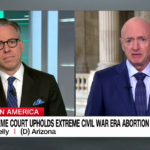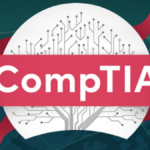
Opinion | Senator Joe Manchin Has a Point
You will find good ideas in the Democrats’ bills (like making Election Day a national holiday, and backing up electronic ballots with paper ones, to facilitate recounts) and just as many in the Republicans’ (Texas’ bans the public funding of third-party ballot distribution). What you won’t find is a single innovation that works against the partisan interests of its sponsors. When Mr. Manchin writes in his op-ed that the argument over voting rights “is not about finding common ground, but seeking partisan advantage,” he does not lack for evidence.
Democrats are offering something different than what they say: not an expansion of voting rights but a relaxation of voting regulations. The For the People Act would codify the looser rules many states adopted in order to conduct the 2020 elections in the midst of a pandemic. That election had the largest turnout rate (66.3 percent) since 1900, and strengthened Democrats. But the looser rules were not so much triumphs of reason as concessions to Covid-19. The conditions that made the new rules seem normal or common-sensical no longer obtain. We might want those rules. But we don’t need them.
There is always a paradox when it comes to democratic elections. They must be opaque, in order to guarantee ballot secrecy and prevent intimidation. But they must also be transparent, in order to prevent fraud. The perennial danger is that some actor with a partisan interest might interpose himself in one of the opaque spaces to make the contest less fair.
At the crudest level, a politician can use private pressure as a way to render himself unaccountable to an electoral verdict. That is what President Donald Trump did when, on Jan. 2, two months after his electoral defeat, he phoned the Georgia secretary of state to seek the reversal of its results in that state. (“Fellas, I need 11,000 votes. Give me a break.”) Certain reforms urged by Democrats are meant to pre-empt abuses and irregularities specific to the Trump era. Title X of H.R. 1, for instance, includes requirements that presidents and vice presidents disclose their tax returns.
The basic practice that Republicans seek to curb is ballot harvesting: Whenever voting happens elsewhere than at a voting booth, third parties are responsible for conveying voters’ intentions to authorities. Obviously, bringing couriers into the voting system can increase turnout — consider “shut-in” older people in nursing homes and elsewhere. Just as obviously, ballot-harvesting increases opportunities for fraud — consider the same older people, chatting about their voting preferences as they plan to hand their votes to a partisan political activist. Some states authorize only relatives or caregivers to deliver votes; others, like California, have no such restrictions, opening the way for activist groups.
It is largely to prevent ballot harvesting that most states used to allow absentee voting only in extraordinary circumstances. The prevailing understanding was that, other things being equal, a slightly lower rate of participation was a price worth paying for an election less susceptible to corruption. Absent a pandemic, there is a coherent case that there should never be absentee or mail-in balloting.
It is striking that reformers in both parties have so little to say directly about what is arguably the biggest problem for the country’s electoral integrity: the dragging out of vote-counting till long after Election Day. Nothing did more to escalate tensions in the days immediately following last Nov. 3 than the indeterminate results in Arizona, Georgia, Nevada, North Carolina and Pennsylvania, as Americans waited for who-knows-how-many votes to come in from who-knows-where.

















